Whew, this is a big question so let’s try to unpack this question to get to whether meal plans will work for you.
This site contains affiliate links (See full disclosure here.)
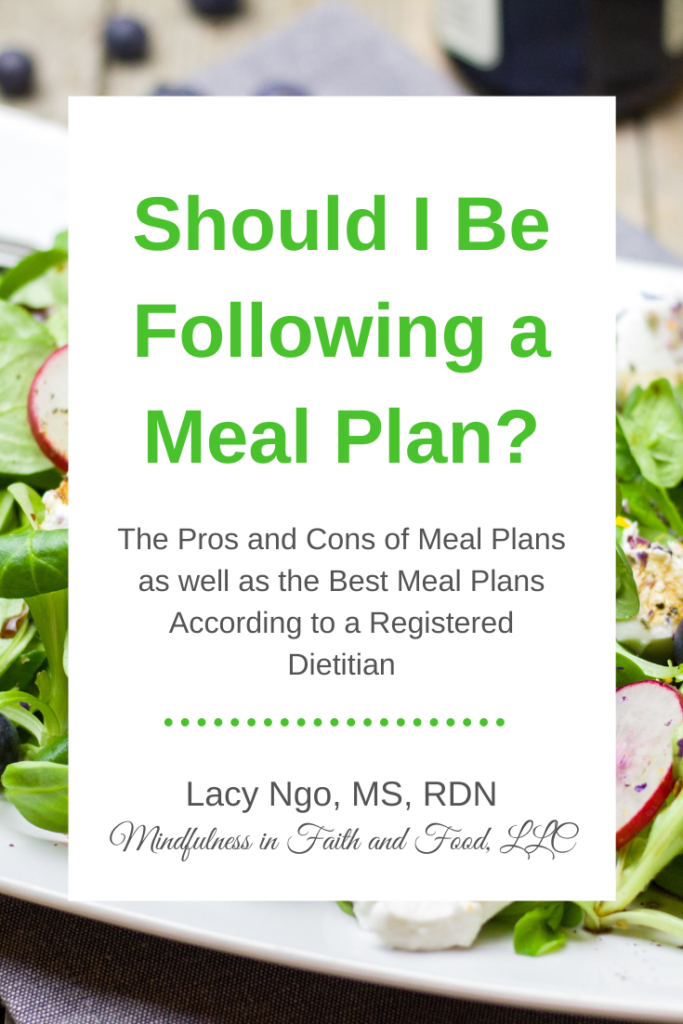
Establish the Reason You Want to Follow a Meal Plan
Before deciding on whether a meal plan is right for you, you will want to decide what is your goal. Are you wanting to improve your mood or anxiety level, reduce inflammation, or decrease your risk of diseases like cancer or Alzheimer’s? Do you want more energy to play with your children, or are you are an athlete who wants to improve your endurance and performance? Are you a college student that want to make sure you are getting adequate nutrition for optimal brain focus and memory, or are you just wanting to implement a meal plan for weight loss? You can often find a meal plan that fits your specific medical condition or goals.
Should Weight Loss Be your Goal in the First Place?
Before moving on, let’s talk a little about weight loss. We have learned so much about the negative impact of weight obsessing and diet culture. In fact, I think we are sometimes so scared about falling back into that weight obsessed trap that we have made others feel guilty, (like they are somehow wrong) for still expressing a desire to lose weight. Yet people have experienced many health benefits after losing weight, such as less joint pain or improved energy. Many who have lost weight have found relief and have seen significant improvements in their medical conditions. So I think it’s okay if you have a desire to lose weight when your desire comes from wanting to improve your health.
With that being said, I would like to encourage you to focus on what foods can do for you more than on your weight. Healthy comes in many different sizes. If everyone ate exactly the same, we still would all be different sizes. We have different builds and genetics. In fact, you may be surprised to find that you feel fantastic even if you don’t look like what the magazines tell you to look like.
What is a Meal Plan and What are the Benefits?
So maybe you are still saying, “Yes, Lacy, weight loss is one of my goals because I think I will feel better.” Or maybe you want to see if following a meal plan will improve a medical condition, your stress levels, or overall health. Now, the next step is to look at the pros and cons of a meal plan.
With meal plans, you choose to follow a specific menu. The length and variety of meal plans can vary. Meal plans can range from weekly meal plans, two-week cycle meal plans, and monthly meals plans. Some menus are on a monthly cycle, which means you have a different meal given to you for every day of the month, and then you start over the next month. Some websites offer even more variety by helping you develop your own meal plans using thousands of foods and recipes. Usually meal plan diets allow you to switch meals around or omit the meals you dislike. Some meal plans are very specific and tell you what to eat at every meal and provides recipes. Other menu or meal plans can be more general. These general meal plans may tell you what types of food to eat at every meal or provide you a list of foods to incorporate instead of giving you a specific menu and recipes.
Pros and Cons of Meal Plans
One benefit of meal plans is that you don’t have to figure out what you are going to eat. This diet takes out the guesswork. For many, the more variety the meal plan allows the better. Meal plans are helpful for people who don’t want to put too much thought into their diet.
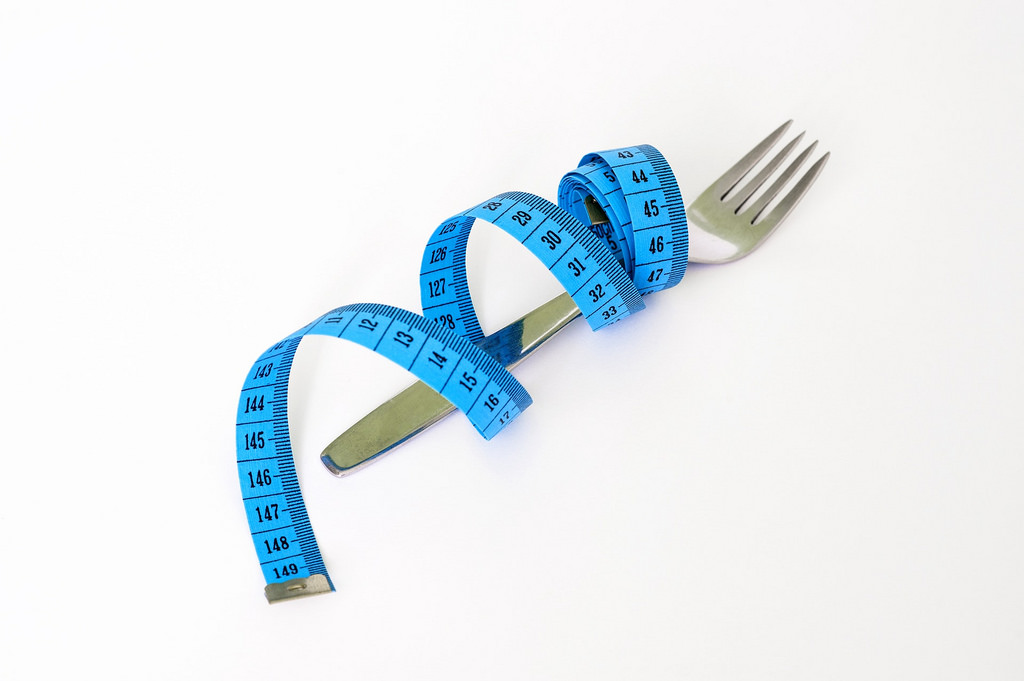

Meal Plans can be considered rigid, and some meal plans are very strict and structured. Some meal plan don’t “travel well” and don’t work well if your day veers even a little bit away from your normal routine. Meal plans may go out the window the minute you are too busy to cook or when you are eating out. Most meal plans are lower in calories, which would help you lose weight; however, many are incomplete of all the nutrition a body needs. These stricter meal plans could become boring due to lack of variety. Moreover, many will end up feeling hungry if the meal plan does not provide enough calories.
Another thing to consider when trying a meal plan is that most people will not do a meal plan forever, especially the strict, rigid ones, and when they stops the plan they may notice the benefits they once had go away.
The Take Home Message
Meal Plan diets, especially strict ones, may not be a good long term plan, but it can sometimes be a great jump start for someone who is overwhelmed with how to start their healthy eating journey. A meal plan might also work well for you if you are the main cook in your household. (If you are not the cook and are not in control of what you cook, then perhaps Portion Control Tips might work best for you.) The more specific, monotonous, restricted, or rigid the menu plan is the less likely you will meet all of your nutritional needs and the less likely you will be able to stick with the diet.
Best Meal Plans
I have found that the best menu plans, however, are the plans that offer variety and flexibility. You don’t follow a specific menu, just general guidelines when you make food choices.
The Nourishing Meal Builder provides the benefits of meal planning without the rigidity. In fact, you can use The Nourishing Meal Builder for the rest of your life! The Nourishing Meal Builder provides a general list of foods to include in your life as well as their benefits. Then, The Nourishing Meal Builder shows you how to either build a nourishing meal on the fly or how to quickly chose your foods in a restaurant so unlike some other meal plans, The Nourishing Meal Builder “travels well.”
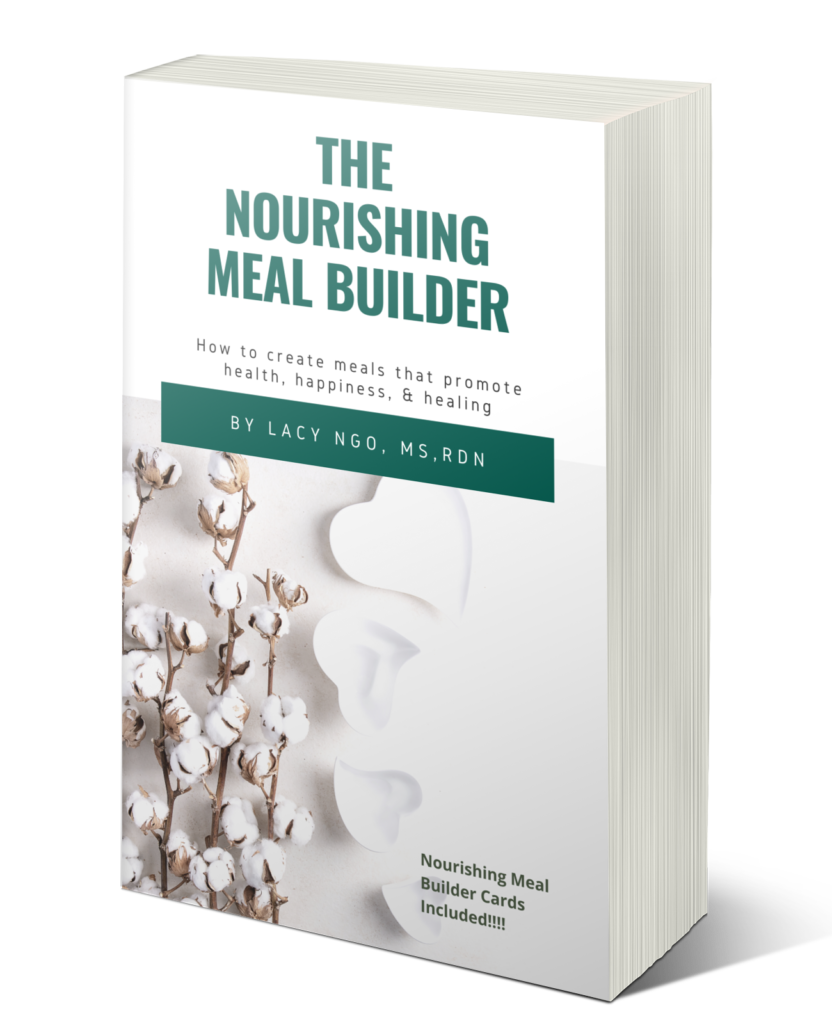
Another form of a meal plan would be using a healthy cookbook to plan your menu. My favorite type of cookbooks are the cookbooks where you can mix and match your breakfast lunches and dinners like the Cooking Light Mix & Match Low-Calorie Cookbook: 1500 Calories a Day.
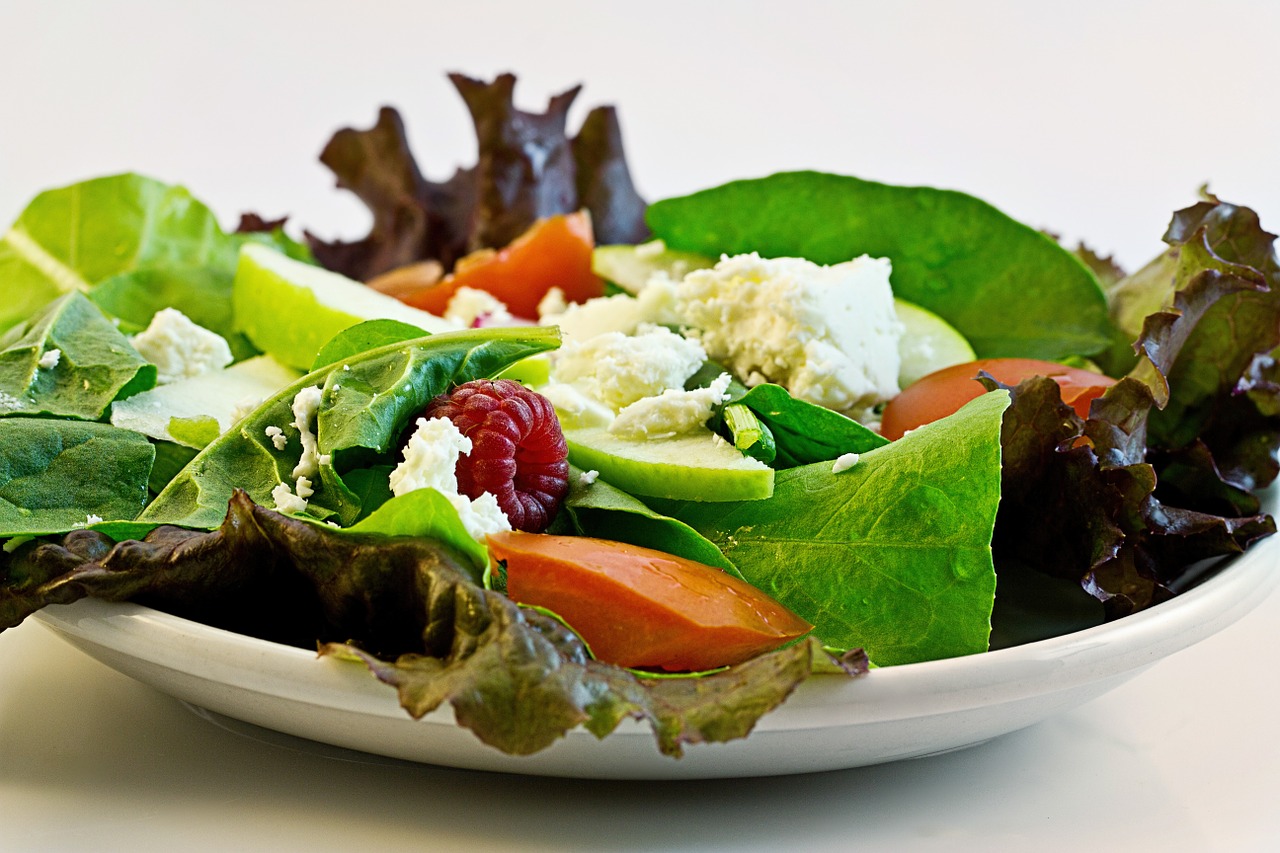
There are thousands of wonderful Meal Plan Books & cookbooks. Below I have named a few:
The Nourishing Meal Builder

The Nourishing Meal Builder: Gluten-Free, Dairy-Free Edition
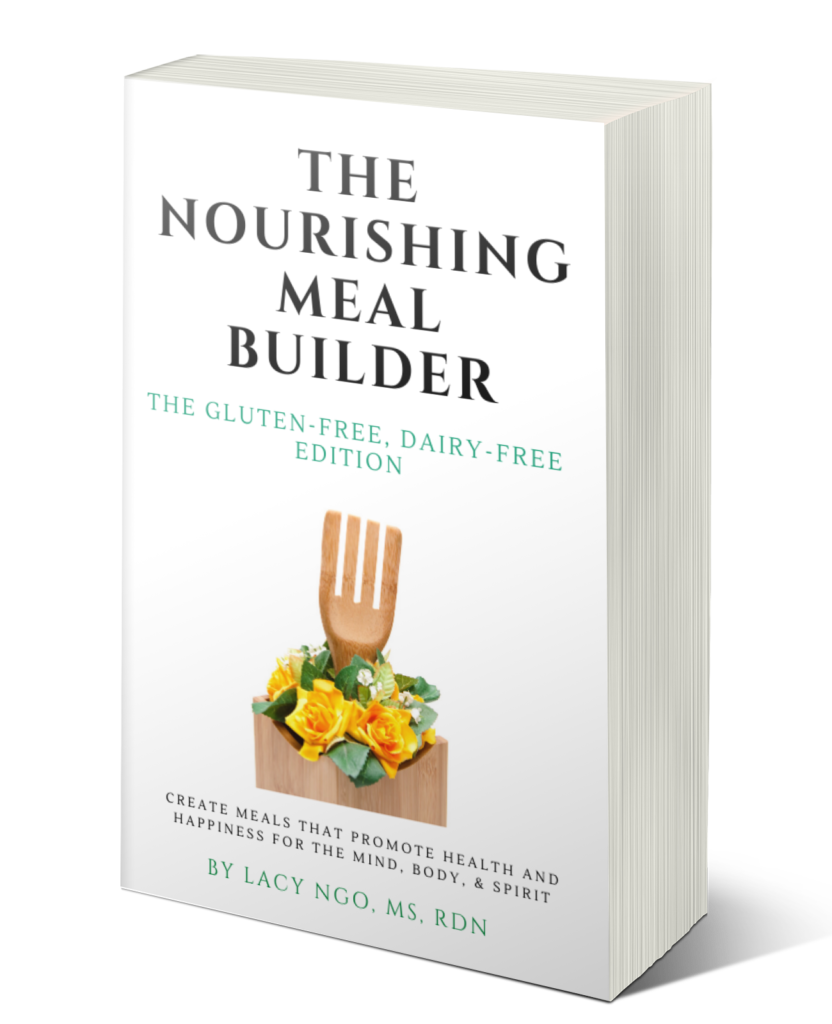
Anti-Inflammatory Diet Meal Prep: 6 Weekly Plans and 80+ Recipes to Simplify Your Healing
The 28 Day Pescatarian Meal Plan & Cookbook: Your Guide to Jump-Starting a Healthier Lifestyle
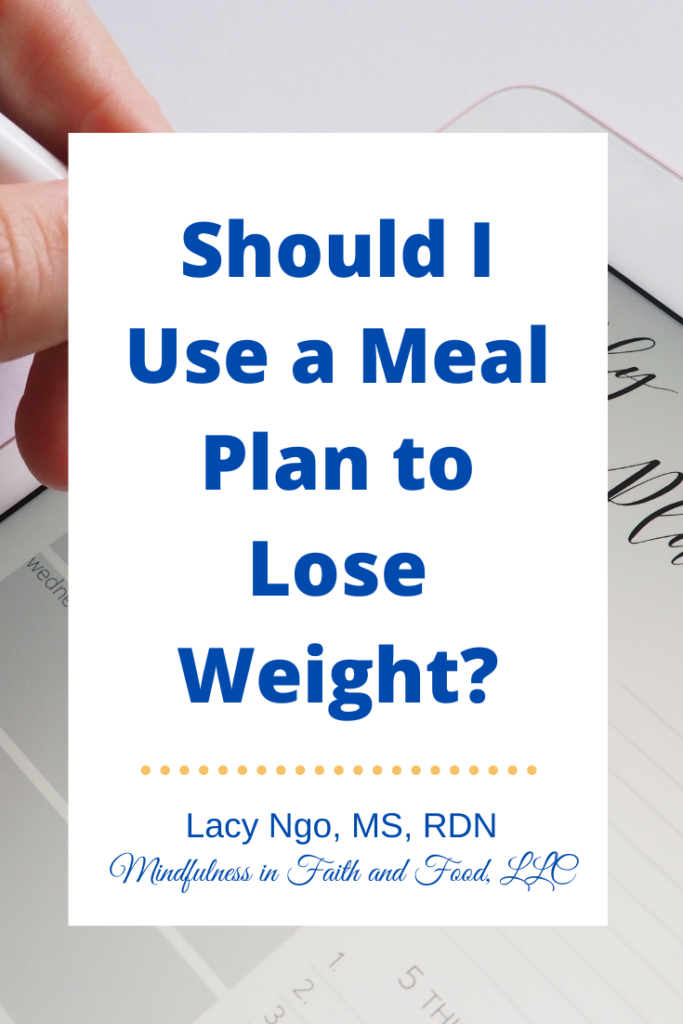
- If you would like to evaluate your own diet and determine which tips work best for you, please take the free Christian Wellness Diet Self Assessment and Evaluation developed by a registered dietitian.
You are free to retain any and all content here for personal use, but need permission to use it anywhere else on the internet.
